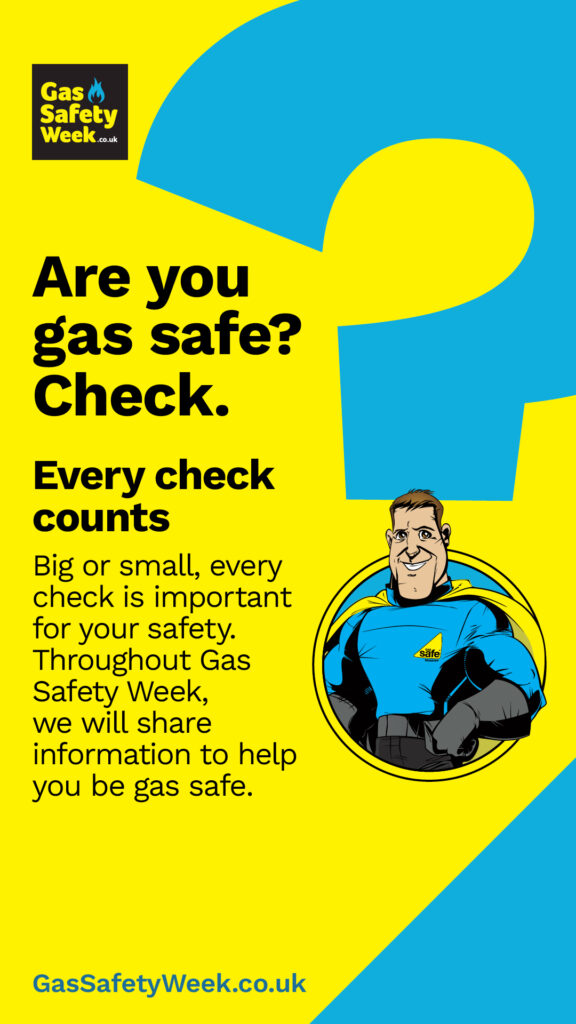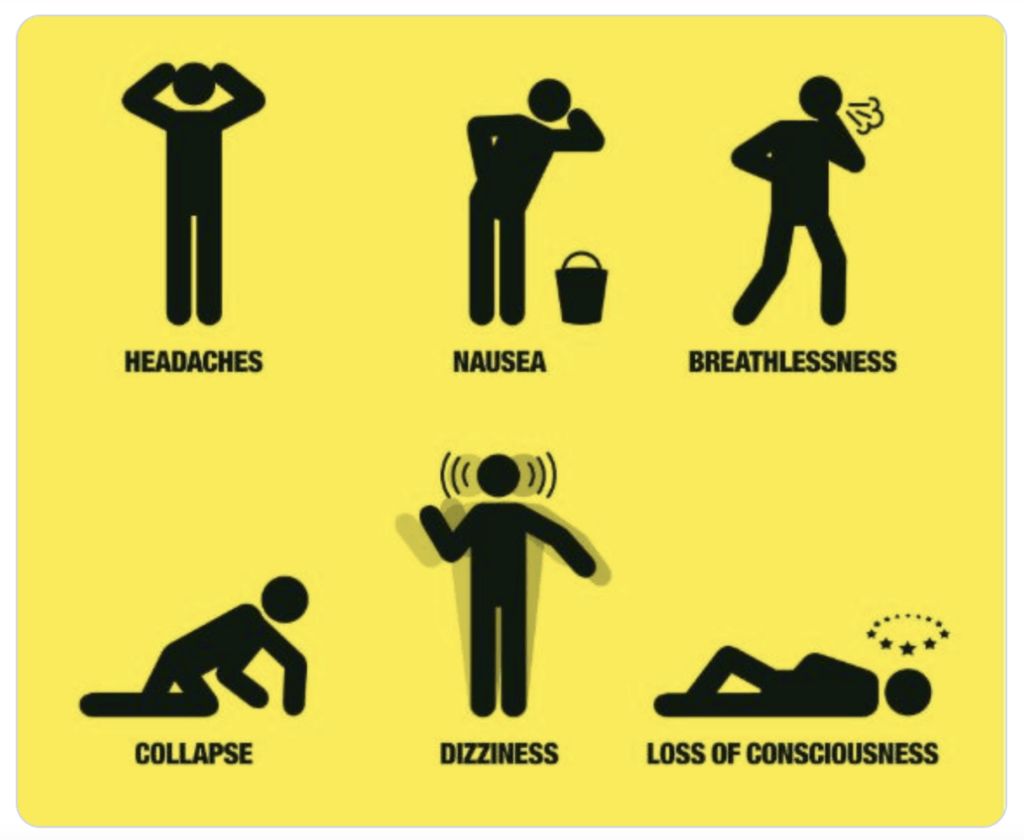Every Check Counts
Gas Safety Week is celebrating its 14th year. It started in 2011 with the objective of raising awareness about the importance of gas safety. It runs in early September, as this is when people start to switch on or at least start to think about switching on their gas appliances as autumn and the cooler weather approaches.

Here are ten simple steps to keep you safe and warm in your home this autumn and winter – as advised by The Gas Safe Register and Gas Safety Week:
1. Only use a Gas Safe registered engineer to fit, fix and service your appliances. You can find and check an engineer at GasSafeRegister.co.uk or call 0800 408 5500.
2. Check both sides of your engineer’s Gas Safe Register ID card. Make sure they are qualified for the work you need doing. You can find this information on the back of the card.
3. Have all your gas appliances regularly serviced and safety checked every year. If you rent your home, ask for a copy of the landlord’s current Gas Safety Record.
4. Know the six signs of carbon monoxide (CO) poisoning – headaches, dizziness, breathlessness, nausea, collapse and loss of consciousness. Unsafe gas appliances can put you at risk of CO poisoning, gas leaks, fires and explosions.
5. Check gas appliances for warning signs that they are not working properly e.g. lazy yellow flames instead of crisp blue ones, black marks or stains on or around the appliance and too much condensation in the room.
6. Fit an audible carbon monoxide alarm. This will alert you if there is carbon monoxide in your home.
7. Keep vents and chimneys clear. Make sure you don’t block any vents, as they are vital to ensure gas appliances burn properly, and chimneys need to be cleaned and checked regularly.
8. Use gas appliances only for their intended purpose. Don’t be tempted to use them for something they weren’t meant for (e.g. using a gas cooker to heat a room).
9. Know the emergency procedure. If you smell gas or suspect immediate danger, make sure you familiarise yourself with the emergency procedure and contact the relevant number for your UK region.
10. Spread the word. Share vital gas safety information with friends, family and neighbours to make sure your community stays safe.
Learn how to conduct your search and discover some of the more advanced features at the following link: How to find and check the register.
A key message behind Gas Safety Week is raising awareness of carbon monoxide poisoning. Apart from the obvious risks which come with using gas appliances – namely gas leaks and explosions, carbon monoxide positioning is a deadly killer which can be avoided. A poorly maintained or poorly ventilated gas fire can lead to incomplete combustion, producing carbon monoxide. Carbon monoxide (CO) poisoning can be deadly. It’s especially deadly as it can’t be seen, tasted or smelt, and some symptoms are very similar to a virus or hangover.
What are the signs of carbon monoxide positioning?
Dull headache
Weakness
Dizziness
Nausea or vomiting
Shortness of breath
Confusion
Blurred vision
Loss of consciousness
While it can be an effective way to save money, if you use a gas fire, especially in just one room, you need adequate ventilation. Most people have a gas fire to keep warm – so they will often keep the windows shut all day and place little to no focus on any form of ventilation. However, for a gas appliance to burn properly, it needs a supply of fresh air. If the air supply is restricted, the level of carbon monoxide rises quickly. This is when things can become very dangerous.

CO Alarms:
Your home should be equipped with carbon monoxide (CO) alarms to warn against high levels of carbon monoxide, which has the potential to kill in minutes. This applies to homes and buildings of all sizes, types, age, design and value. Carbon monxide does not descriminate!
Which? recommends that a good alarm should sound when it detects the gas and it should be loud enough to alert everybody in the house. Its also vital that all your gas appliances including your boiler, fire and oven are regularly checked by a registered trader. They will be able to check they are working as efficiently and safely as possible.
Get it checked!
Book an annual gas safety check with a qualified Gas Safe registered engineer. Not only does regular maintenance of your gas appliances help to keep you safe from gas leaks, fires, explosions and carbon monoxide (CO) poisoning, but getting an annual service could help minimise the risk of future disruptions to your household and potentially save you money further down the line.
By law, anyone working on your gas boilers, cookers, fires and all other gas appliances must be Gas Safe registered. You can check or find registered gas engineers in your area. Gas Safe Register is the official list of engineers registered to work safely and legally on.








